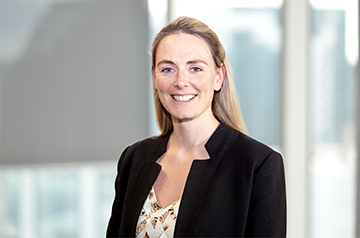
For Senior Associate Jessica Reid, it was Tetra Tech Coffey’s positive approach to employment flexibility that enabled her to continue in the career she worked so hard to achieve while juggling the challenges of a young family.
For many professional women, who have dedicated years of young adulthood to the development of their career, having their first child has led them to a fork in the road. One path leads to leaving the career they’ve worked so hard to achieve, to spend more time with their baby; while the other leads to losing precious days with their children in order to work the long hours required in the corporate world.
But an increasing number of organisations are beginning to realise that offering flexible workplace options is crucial in order to retain high quality employees, rather than lose them to parenthood. As a Senior Associate with Tetra Tech Coffey, the dream combination of continuing my engineering career, while being readily available for my two children has been well and truly achieved, thanks to work flexibility.
While important within all industries, I believe a positive approach to flexibility is particularly imperative for industries such as ours, which has a history of gender imbalance.
Looking back at the start of my career, I applied for the ‘special consideration’ that my university offered specifically to women, designed as a means for improving the gender imbalance in the field of engineering. So even before I graduated from high school, I was aware of the gender imbalance in my field.
As it turned out, my final VCE marks exceeded the entrance requirement for engineering, so I didn’t need to pursue the special consideration. But its very existence told a story. During my studies, I commenced casual work with Enesar, later purchased by Tetra Tech Coffey, moving to a full-time position in 2005.
It was after 11 years with the company, I made the decision to start my family. At the time I took it for granted that returning to work after having kids was achievable having watched many of my colleagues do the same. I have since learned the challenges of the ‘juggling act’.
I approached my manager with a request to combine both her successful engineering career and motherhood, via part-time employment. I based my decision on the minimum number of days I felt I needed to do to feel that I was making a valued contribution, and balance those hours with motherhood. It was really great to have a supportive organisation that was very accepting of my decision to return to work after 12 months’ leave.
Tetra Tech Coffey’s willingness to allow employment flexibility has been the sole reason I have been able to continue in the career that I love and worked so hard to achieve.
For me, flexibility in my working arrangements has afforded my return to work because I would be unwilling to return to work full-time whilst my children are very young, and the nature of my husband’s full-time work does not afford flexibility. The flexible working arrangements mean that I don’t have a large hiatus in my career after having children, one that could ultimately prevent me from returning to work as a consultant/engineer.
I believe that society still has a long way to go in terms of offering flexible workplace arrangements for both men and women. Only once men and women are both seen as potentially being the primary caretakers, can society afford women the same opportunities to progress their career and have families, as the men do.
Early in my career I had the opportunity to report to a female Project Director, who had two school-age children. My manager at the time was instrumental in my career growth, and I was always astounded when she found the time to send a note of appreciation for a task I completed, whilst delivering one of our group’s largest projects, and going home to her family.
It has not been lost on me the value of a role model whom I could so readily relate to.